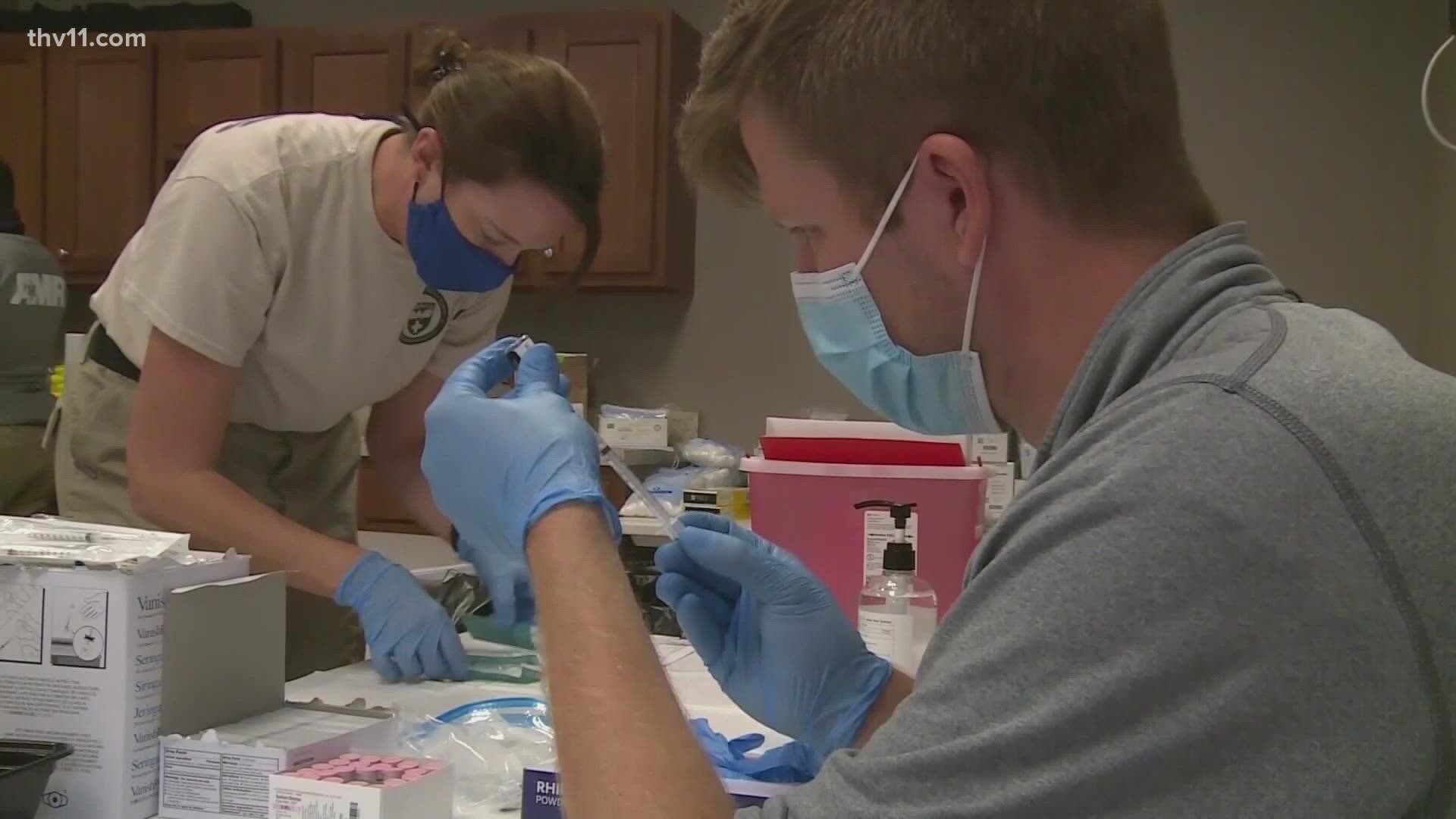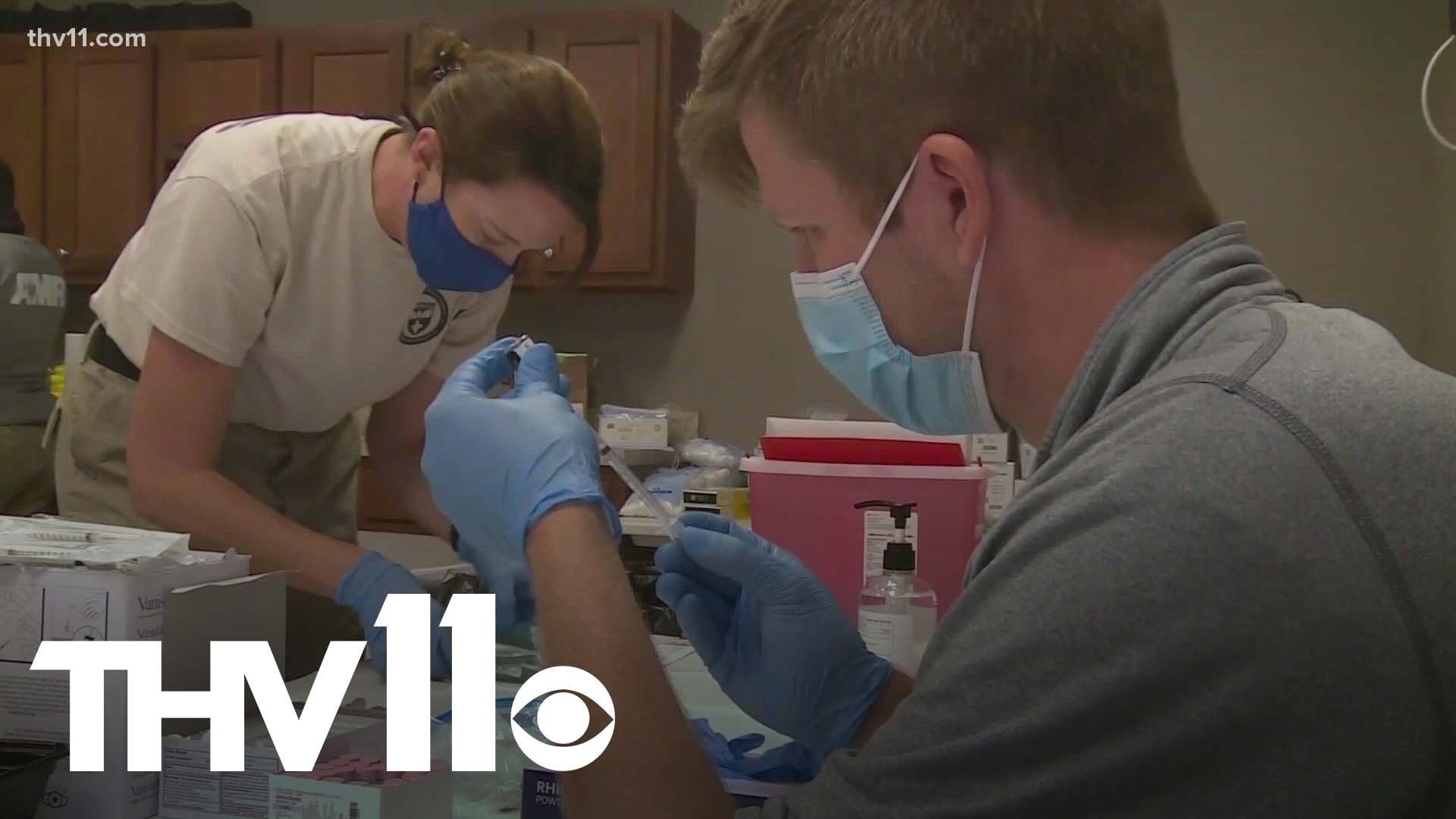Here's what the latest COVID-19 guidance means for Arkansas
There's been a lot of information this week about the changing COVID-19 guidelines. Here's your guide to navigate the latest guidance surrounding the virus.

There has been a lot of information thrown at everyone this week about COVID-19. Between increasing numbers of cases, changing symptoms, and new quarantine guidance, there's a lot of room for questions to be asked.
So, we asked health experts how you can best keep both yourself and others healthy.
Is it a cold or is it COVID-19?
We're starting starting with what COVID could look like. For most of the pandemic, the virus has been notorious for causing symptoms such as coughing, fever, exhaustion, and loss of smell or taste.
Things are different now with the new omicron variant. While it can produce all of those symptoms, it often looks more like a common cold with a stuffy, runny nose, sore throat, and headache.
One thing that hasn't changed is that when omicron gets severe, it usually causes pneumonia-- which can lead to hospitalization and even death.
But no matter your symptoms, doctors have said if you're feeling off to always get tested as a rule of thumb.
Dr. Robert Hopkins, Chief of the Division of General Internal Medicine at UAMS said, "If you've been vaccinated, your risk is reasonably low of having severe infection. But I would still encourage you to have that test to know whether you've had infection or not."
What should I do if I've been exposed?
While Dr. Hopkins said you don't have to get swabbed on a schedule, you should get tested if you've been exposed. The most high-risk type of exposure is spending 15 minutes within a few feet of an infected person-- though transmission can happen in other ways.
"If you have contact with somebody that you know has COVID testing from somewhere from 2-5 days after that contact is going to be the most sensitive to determine whether you've caught that infection," Dr. Hopkins said.
What are my testing options?
So with terms like, PCR, rapid, and antigen being thrown around, how can you best navigate your options for getting tested?
While all can provide helpful information, the main difference between the tests are sensitivity and speed.
"The PCR test is going to have the best sensitivity, it's going to have the best accuracy. The antigen test is going to tell you more likely whether you're infectious, that is not quite as sensitive as that PCR test," Dr. Hopkins said.
What if I'm vaccinated and test positive?
Now if you do test positive, what comes next? The first thing is to isolate from other people for at least 5-days.
The isolation could possibly be longer depending on your vaccination status and whether you have symptoms.
"At the end of 5-days if you're still asymptomatic, or you had symptoms, but they've gotten much better, and your fever has been going for 24 hours, you can go ahead and get out of isolation on day 6 as long as you wear a mask," Arkansas Department of Health physician and outbreak response team member Dr. Joel Tumilson said.
When should I wear my mask?
As a rule of thumb, doctors still recommend that you always mask up when in doubt, but especially in the last 5-10 days after testing positive you're going to want to keep your mask on whether you're vaccinated or not.
How do vaccines help?
But one piece of advice that has remained constant from both UAMS and the Arkansas Department of Health is that while vaccinated people may still get sick, their risk is much lower for any serious infections, hospitalizations, or death.
"Well, you may get sick after you're vaccinated, but your risk of having severe infection that's going to land you in the hospital, or potentially in the ICU, or on the ventilator is far, far less," Dr. Hopkins said.
What can I expect going forward?
As scientists learn more about this virus and new variants form, what can we expect moving forward?
"As far as quantity of testing right now, in Arkansas, I think we're okay. But that will probably be a little more challenging in coming weeks. As far as what cases are going to do well, they're there you know, they're clearly going up. " Dr. Tumilson added.


